You are using an outdated browser. Please upgrade your browser or activate Google Chrome Frame to improve your experience.

The Easy Guide to Talking About Your Family in French
It probably doesn’t sound that difficult to converse without mentioning family.
Think about it, though. How often in a conversation do you say something like, “Sorry, my dad keeps texting me.”
“Oh, you like my sweater? Thanks! My husband gave it to me for Christmas.”
The list of ways our family members come up in conversation is endless, so we’ve put together this post to help you out. Ready to start talking about family in French?
French Vocabulary Related to Family
Your immediate family, your extended family, introducing family members in french, formal introductions, informal introductions, practice talking about family in french, and one more thing....
Download: This blog post is available as a convenient and portable PDF that you can take anywhere. Click here to get a copy. (Download)
Before we get into situations and phrases, let’s start with the basics. What is the French translation for terms related to family members?

- Les parents (parents, or in a more generic sense, relatives of any kind)
- La mère (mother)
- Le père (father)
- La maman (mom or mommy)
- Le papa (dad or daddy)
- Le frère (brother)
- La sœur (sister)
- Les frères et sœurs (siblings)
That’s right, there’s no word for “siblings.” You just have to say “brothers and sisters.”
- La fille (daughter)
- Le fils (son)
- Les grands-parents (grandparents)
- La grand-mère (grandmother)
- Le grand-père (grandfather)
- La mémé (grandma)
- Le pépé (granddad)
- Les petits-enfants (grandchildren)
- La petite-fille (granddaughter)
- Le petit-fils (grandson)
- L’époux / l’épouse (spouse)
- Le mari (husband)
- La femme (wife)
- La belle-mère (mother-in-law)
The “in-laws” literally translate to “beautiful mother,” “handsome father,” etc. This translation really removes the negative stigma typically associated with in-laws!
- Le beau-père (father-in-law)
- Le beau-frère (brother-in-law)
- La belle-sœur (sister-in-law)
- La belle-fille (daughter-in-law)
- Le beau-fils (son-in-law)
- La belle-mère (stepmother)
You’ll notice that the “in-laws” and “steps” both translate to the same word. Confusing, isn’t it?
- Le beau-père (stepfather)
- Le beau-frère (stepbrother)
- La belle-sœur (stepsister)
- La belle-fille (stepdaughter)
- Le beau-fils (stepson)
- Le demi-frère (half-brother)
- La demi-sœur (half-sister)

- La cousine (female cousin)
- Le cousin (male cousin)
- Les cousins / les cousines (male or mixture of male and female cousins/female cousins)
- L’oncle (uncle)
- La tante (aunt)
- Le neveu (nephew)
- La nièce (niece)
These are the phrases you would whip out at those work and social events, when having people over to your family’s home or if you run into someone you know on the street while out with a family member.
You would use these phrases when introducing family members at an event, or to elders and people you respect.
- Je vous présente… (I present to you…)
Remember to use vous to talk to people who are older or in a position of authority. For example, you might use this phrase when you introduce a family member to your boss or to a friend’s parent.
Monsieur, je vous présente mon mari, Daniel. (Sir, I present to you my husband, Daniel.)
Bonjour, Madame Thierry! Je vous présente ma mère. (Hello, Mrs. Thierry! I present to you my mother.)
- Je te présente… (I present to you…)
Use the tu form when speaking to a friend, an equal or someone younger than yourself. In this case, you are introducing a family member to someone who fits this profile, but while using a more formal structure:
Salut, Brigitte! Je te présente mon beau-frère, Charles. Charles, Brigitte est ma camarade de classe. (Hi, Brigitte! I present to you my brother, Charles. Charles, Brigitte is my classmate.)
- Il s’appelle… / Elle s’appelle… (His/her name is…)
Je te présente mon oncle. Il s’appelle Nico. (I present to you my uncle. His name is Nico.)
Bonjour, madame. Je vous présente ma tante. Elle s’appelle Esther. (Hello, ma’am. I present to you my aunt. Her name is Esther.)
You would use these informal introductions with your close pals. Sometimes people use these terms as quick introductions if they are in a hurry or distracted. Let’s say your mom randomly walks into the room while you guys are playing video games. You don’t have time for formalities, you’ve got dragons to kill!
- C’est… (This is…)
C’est is a casual way to say, “This is.”
Salut! C’est mon cousin. (Hi! This is my cousin.)
- Voilà… (Here is…)
This would be used in a situation when you are surprised to see someone. For example, if you weren’t expecting a family member to walk in at that moment, you use voilà as a quick announcement of their arrival.
Oh, voilà ma femme! (Oh, here is my wife!)
FluentU takes authentic videos—like music videos, movie trailers, news and inspiring talks—and turns them into personalized language learning lessons.
You can try FluentU for free for 2 weeks. Check out the website or download the iOS app or Android app.
P.S. Click here to take advantage of our current sale! (Expires at the end of this month.)

Try FluentU for FREE!
I bet you didn’t even think about how many family members existed until you saw that list. But don’t be overwhelmed! There are plenty of free online learning tools where you can practice memorizing all this vocabulary. Check out these simple exercises on The French Experiment .
Even watching videos in French can help you get used to new vocabulary. There are limitless videos to be found on YouTube .
Of course, you can talk in-depth about your family for hours.
But hopefully these basics will get you started!
This way, when a date or coworker asks you about your family, you won’t have to go hide out in the bathroom to avoid the conversation.
FluentU has a wide variety of great content, like interviews, documentary excerpts and web series, as you can see here:

FluentU brings native French videos with reach. With interactive captions, you can tap on any word to see an image, definition and useful examples.

For example, if you tap on the word "crois," you'll see this:

Practice and reinforce all the vocabulary you've learned in a given video with learn mode. Swipe left or right to see more examples for the word you’re learning, and play the mini-games found in our dynamic flashcards, like "fill in the blank."

All throughout, FluentU tracks the vocabulary that you’re learning and uses this information to give you a totally personalized experience. It gives you extra practice with difficult words—and reminds you when it’s time to review what you’ve learned.
Start using the FluentU website on your computer or tablet or, better yet, download the FluentU app from the iTunes or Google Play store. Click here to take advantage of our current sale! (Expires at the end of this month.)
Related posts:

81 French Acronyms and Abbreviations

9 Best French-English Dictionaries and Apps for French Learners in 2024
Reply to this review cancel.
Thanks for choosing to leave a comment. Please keep in mind that all comments are moderated according to our comment policy , and your email address will NOT be published. Please Do NOT use keywords in the name field. Let's have a personal and meaningful conversation.
Recent Articles

The French Conditional Mood: Usage, Formation and Tips

The French “R”: 3 Ways to Nail Pronunciation

The Colors in French: Pronunciation and Expressions
Enter your e-mail address to get your free pdf.
We hate SPAM and promise to keep your email address safe


Learn the vocabulary needed to describe, “Ma famille”, you will find a reading of family members in French with their corresponding translation in English. Here you will learn how to say brother and sister, friends, etc, in French.
Enjoy the reading about : Ma famille.
Reading : My family
Short video: the family.
VIDEO QUIZ Now watch the video and answer the following questions :
Practice more about the family: review more vocabulary, try a dictation, listen to the reading and enjoy the conversation:, more french readings practice here:.

Explore More French Reading Levels: Click on the level of your interest:
- Readings Level 1
- Readings Level 2
- Readings Level 3
- Readings Level 4
- Readings Level 5
- Readings Level 6
- Readings Level 7
- Readings Level 8
French Resources for Level 1:

Do you want to practice another Resource? Click on the image of your interest:

Cours de français débutant
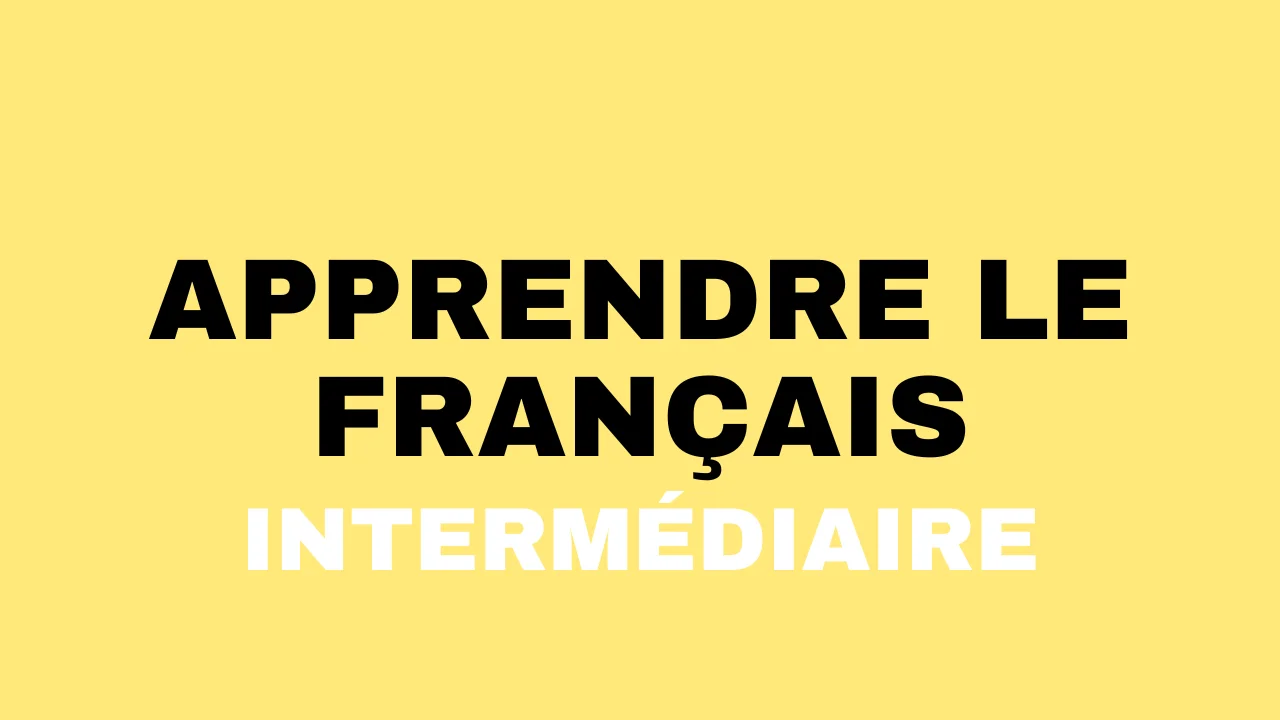
Cours de français intermédiaire
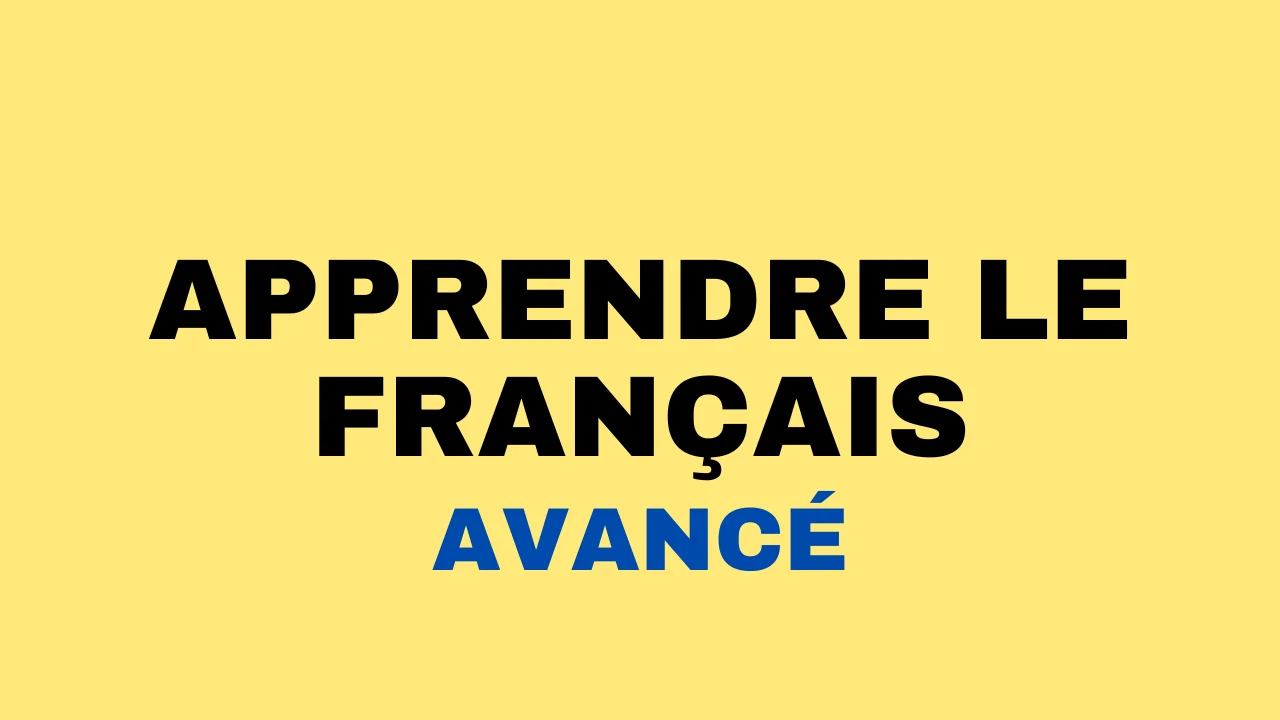
Cours de français avancé
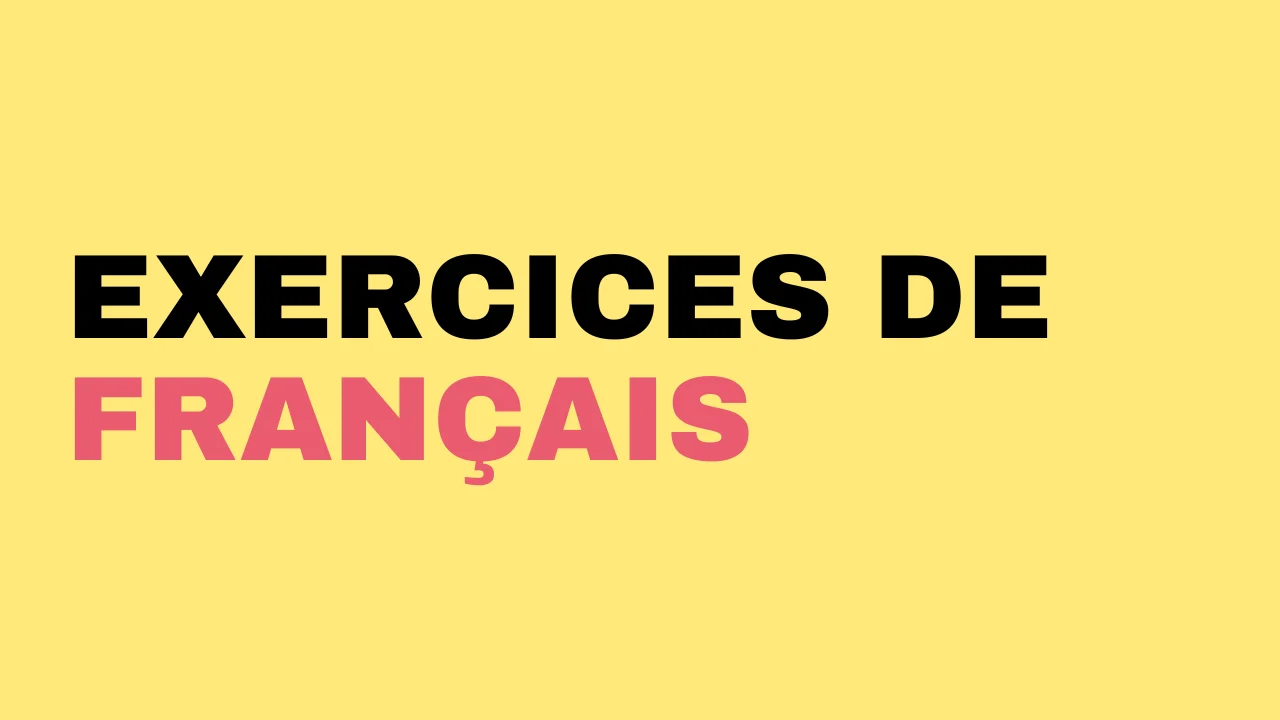
Exercices de français
Compréhension orale.
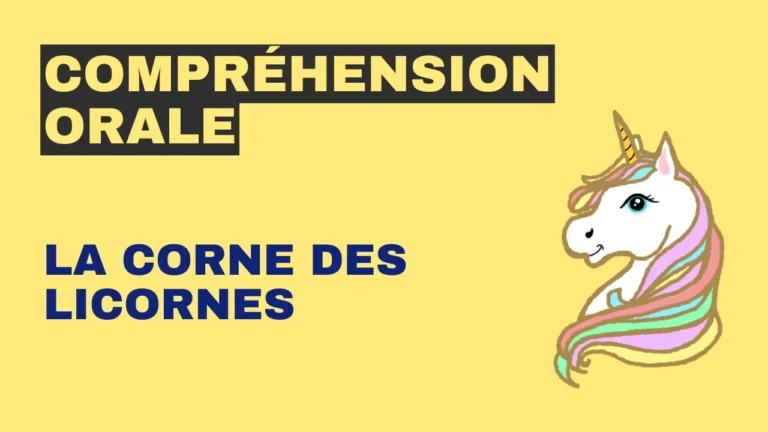
Compréhension orale : La corne des licornes
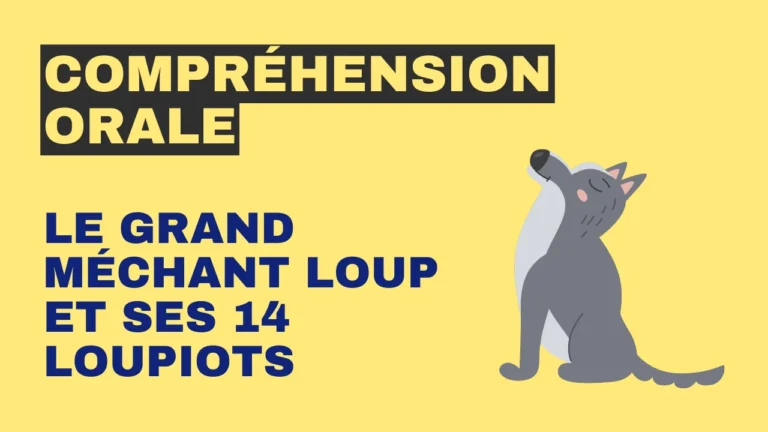
Compréhension orale : Le grand méchant loup et ses 14 loupiots
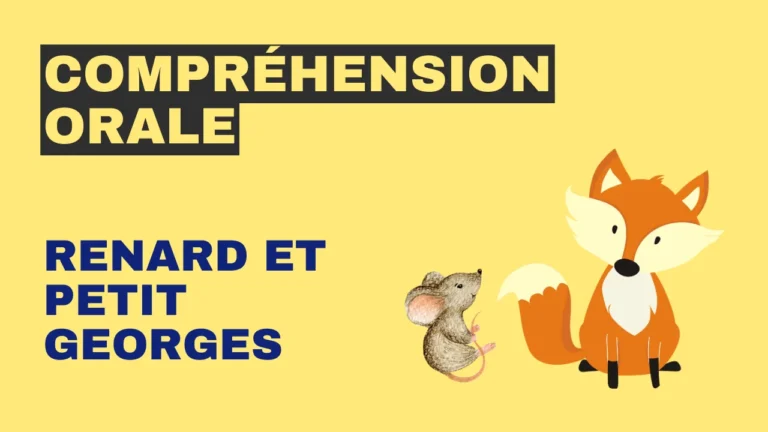
Compréhension orale : Renard et Petit Georges
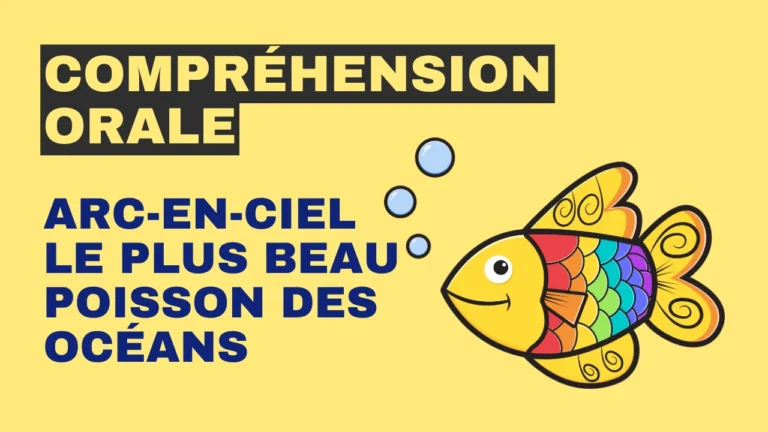
Compréhension orale : Arc-en-ciel le plus beau poisson des océans
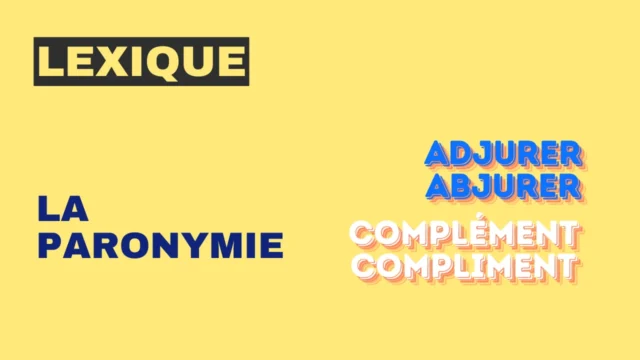
Lexique : la paronymie

Grammaire: l’adverbe de lieu

Grammaire : les verbes transitifs

Grammaire : les verbes intransitifs
Communication.

Apprendre le français : se réunir

Apprendre le français : accomplir des tâches professionnelles

Apprendre le français : parler d’un poste en entreprise

Apprendre le français : parler d’une entreprise
Vocabulaire.

Vocabulaire : les mots de la conjugaison

Vocabulaire : la biologie

Vocabulaire : la biographie

Vocabulaire : la bioénergie
Conjugaison.

Conjugaison : radical et terminaison

Conjugaison : les verbes

Conjugaison : les temps verbaux

Conjugaison : le conditionnel passé
Orthographe.

Orthographe : « ces » et « ses »

Orthographe : le pluriel des mots simples

Orthographe : le pluriel des noms composés
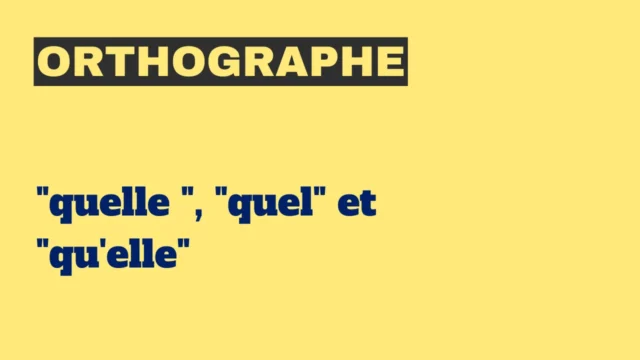
Orthographe : « quelle « , « quel » et « qu’elle »
Dialogues en français.
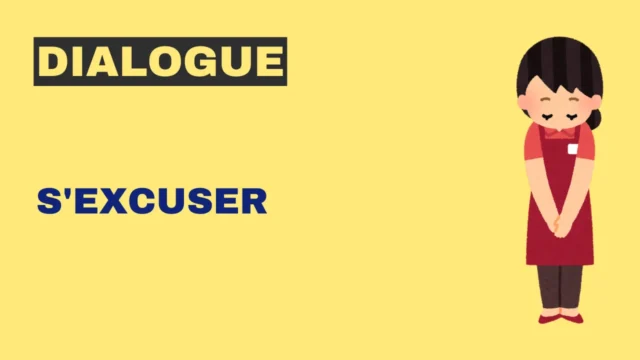
Dialogue : s’excuser
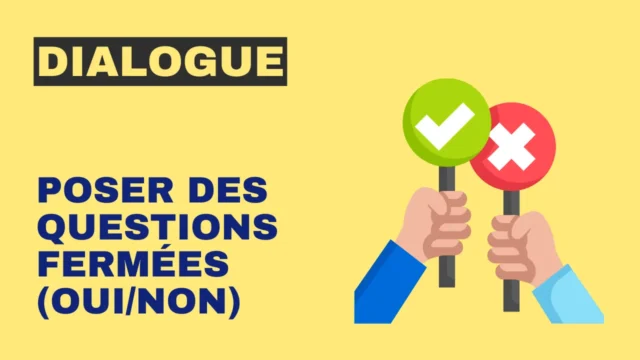
Dialogue : poser des questions fermées (oui/non)
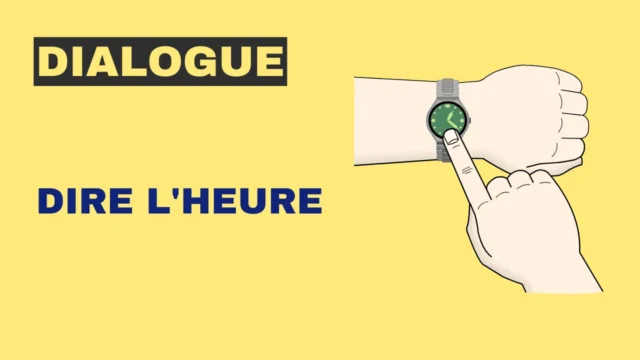
Dialogue : dire l’heure
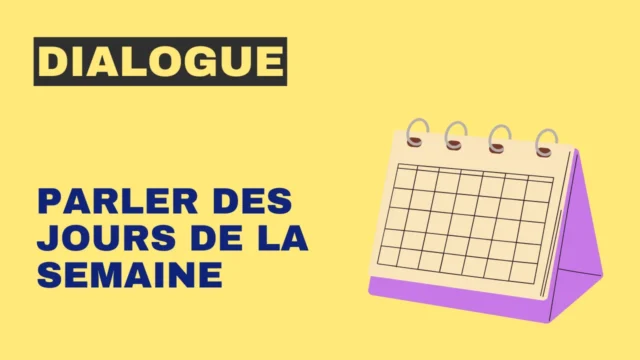
Dialogue : parler des jours de la semaine
Textes en français.
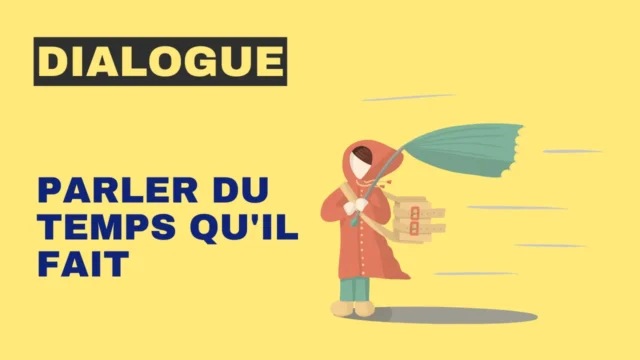
Dialogue : Parler du temps qu’il fait
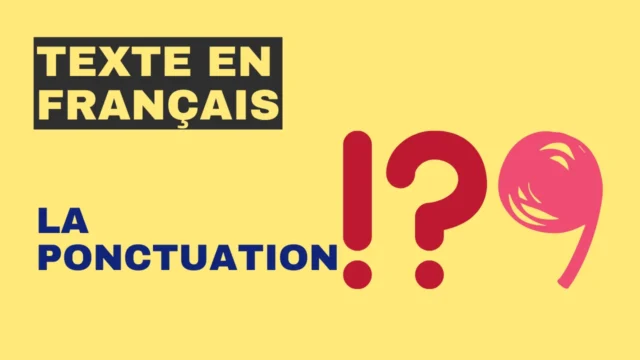
Texte en français : La ponctuation

Texte en français : L’eau courante
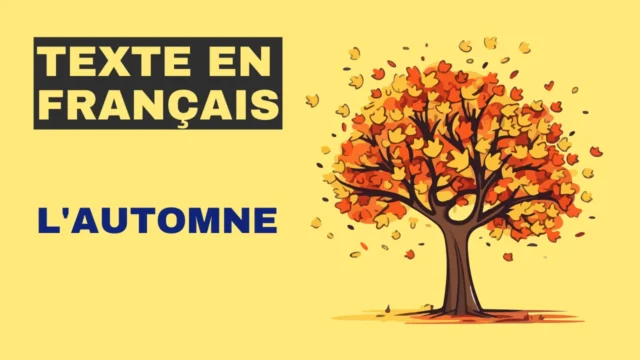
Texte en français : L’automne
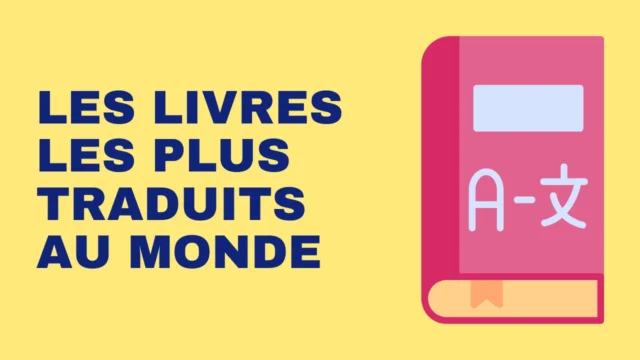
Les 10 livres les plus traduits au monde : des œuvres littéraires qui ont conquis la planète
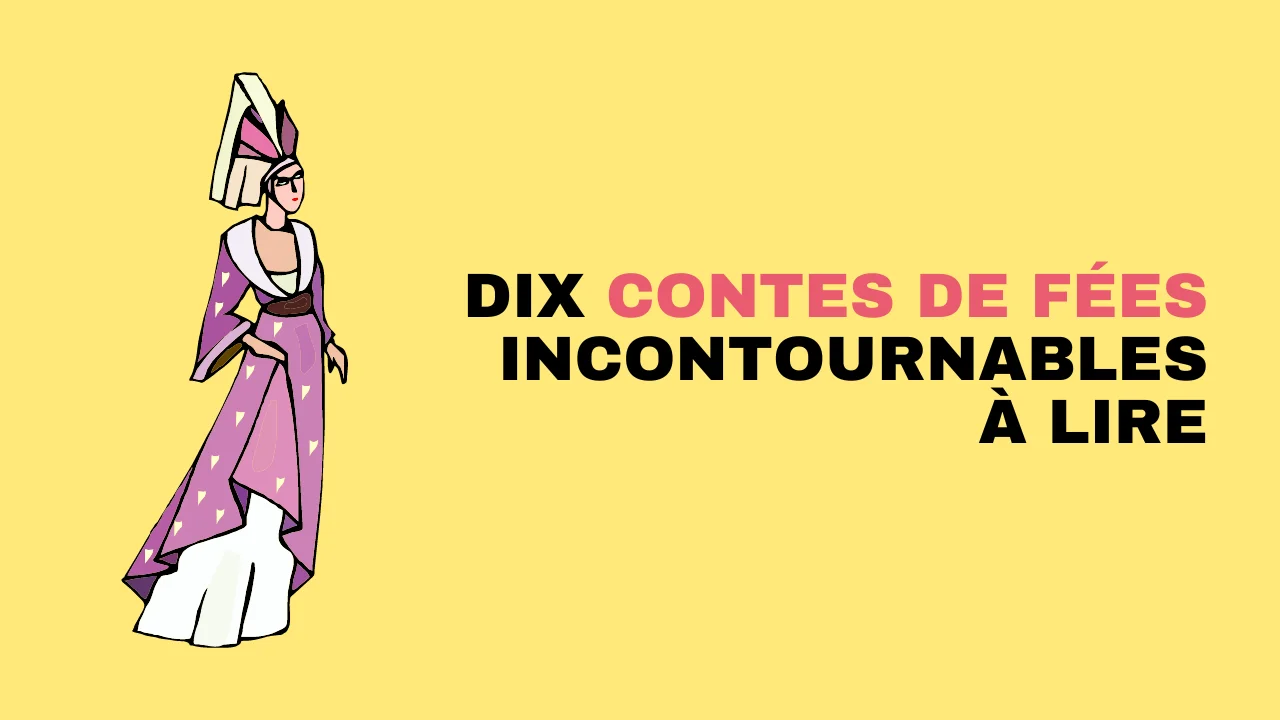

Dix contes de fées incontournables à lire

Qu’est-ce qu’un récit ?

Qu’est ce qu’un récit de voyage

Je vous prie d’agréer.. – 20 formules de politesse à employer dans vos correspondances formelles en français
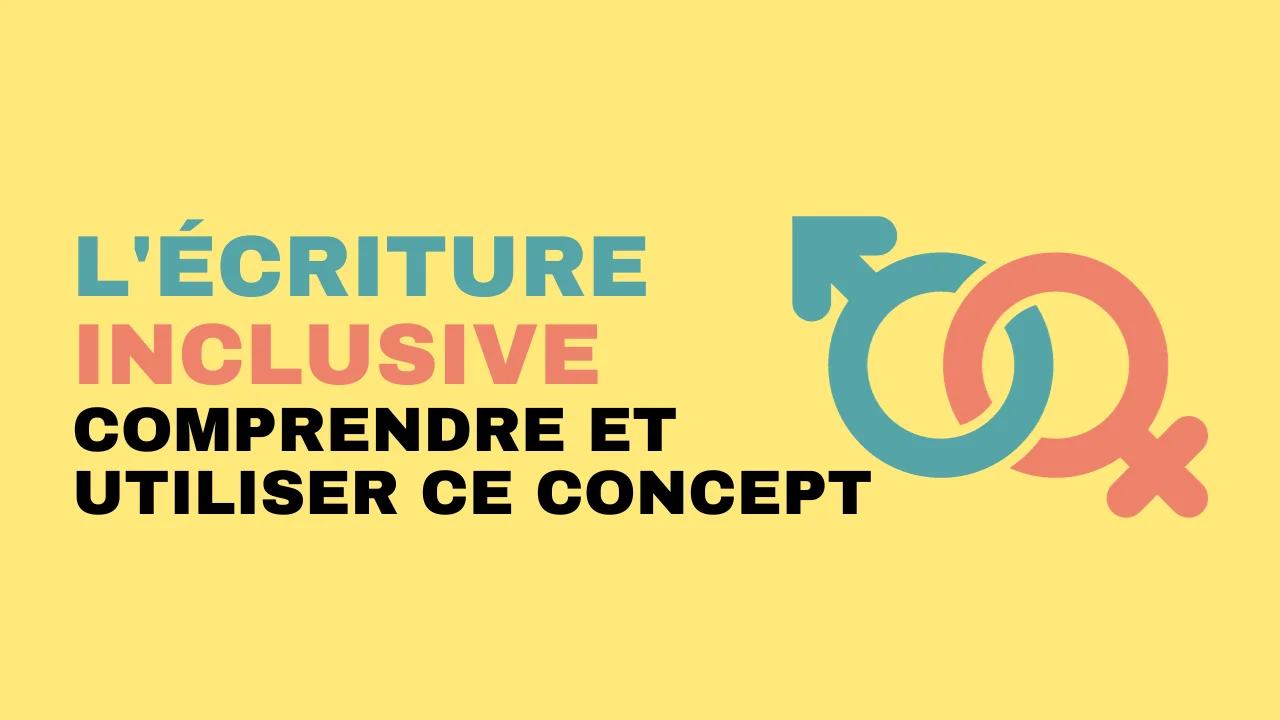
L’écriture inclusive : comprendre et utiliser ce concept

Rédiger un récit de voyage
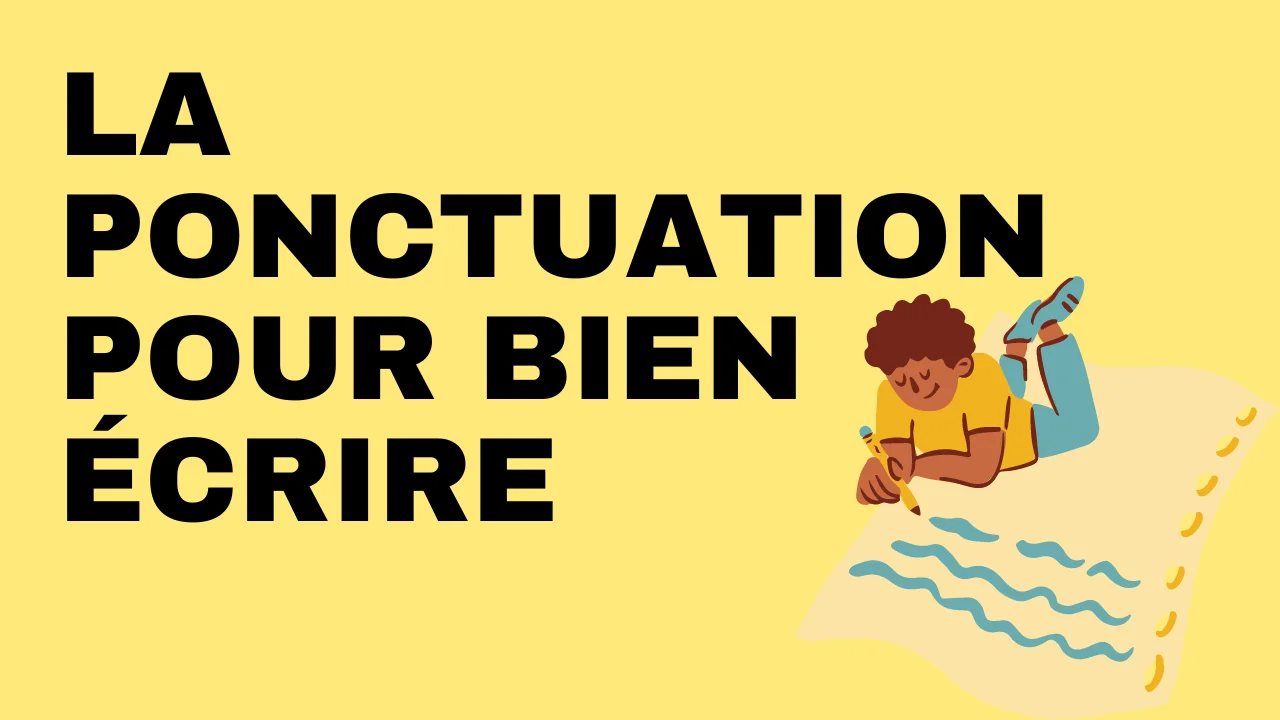
La ponctuation en français pour bien écrire
Tous les exercices de français.

Exercices : Orthographe : « quelle « , « quel » et « qu’elle »

Exercices : les préfixes courants en français

Exercices : suffixes courants en français

Exercices : les articles définis et indéfinis
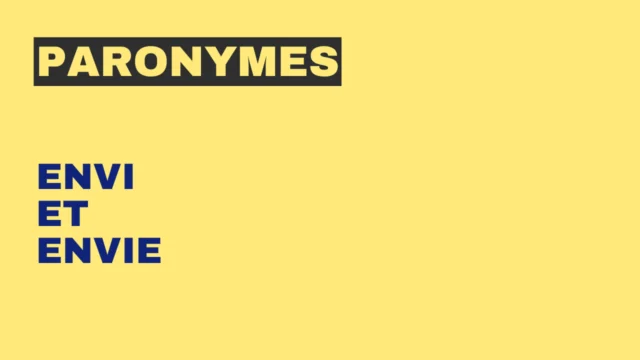
Paronymes : envi et envie
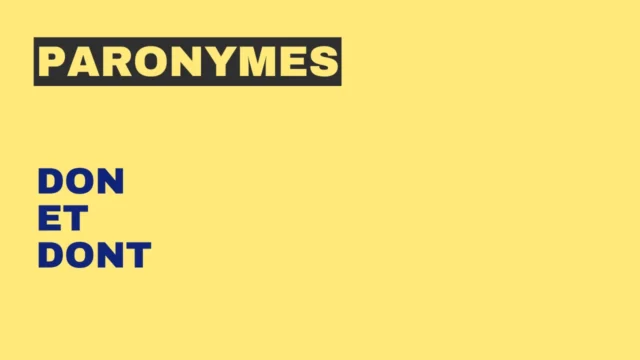
Paronymes : don et dont
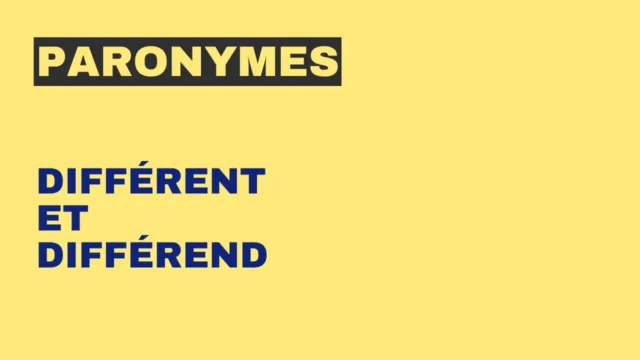
Paronymes : différent et différend
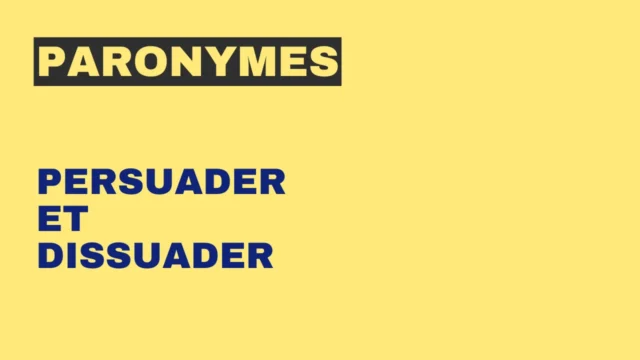
Paronymes : persuader et dissuader
Faire un quiz.

Quiz 20 – Paronymes

Quiz 19 – Mots composés

Quiz 18 – Prépositions de lieu

Quiz 17 – Féminin des noms de métiers
Si vous vous inscrivez ci-dessus, nous utilisons ces informations pour envoyer du contenu, et autres offres spéciales adaptées à votre profil.

French Family Guide: Talking About Your Family in French

Your romance with a lovely French local has gained momentum and the time has come for one of the most terrifying milestones of ‘serious’ relationships: meeting your mother-in-law. Whether she’s a gatekeeper mom or just genuinely interested in her daughter’s “one and only,” chances are, you’ll be asked a lot of questions that will make you say: “Damn, how do I say mother in French? Or father or family in French?”
When meeting your parents-in-law, or any random person before a work meeting or over a beer, the trick is to find some common ground and get the other person to talk about something they can relate to. Hence, before you get to know a person and learn about your common interests, talking about their family or yours is a highly effective icebreaker.
Besides, have you ever noticed how often our relatives randomly pop into seemingly unrelated conversations? “My wife this,” “My mother that,” “My brother has the same thing,” and “My cousin has done that too!” As soon as you get comfortable with the vocabulary and the basic structures, it will unveil a whole lot of conversation opportunities and a wealth of follow-up questions to keep it going!
Learn how to describe family in French with FrenchPod101’s guide to family in French for beginners, and never lack the proper word again!
Table of Contents
- French Family Vocabulary: Complete Family Word List
- Beyond the Blood
- How to Talk About Family
- The French Family is Changing Rapidly
- How FrenchPod101 Can Help You Learn More French Vocabulary

1. French Family Vocabulary: Complete Family Word List

Before we get to talk about our family or inquire about somebody else’s, we’re gonna need some serious vocabulary! But don’t worry about the size of the list, just pick and remember whichever ones apply to your situation and the ones you’re typically going to ask about (siblings, kids?). You’ll learn the rest in due time as you continue talking about family in basic French.
1- The Inner Circle
Here are the most basic family members in French, the ones you’ll likely talk the most about.
/! Do not confuse mon parent , meaning “my relative,” and mes parents meaning “my parents.
Un parent meaning “a relative,” and des parents meaning “relatives,” both refer to relatives of any kind, while mes parents (possessive plural) means: “my parents” (in the sense of: mother and father).
- Je vais voir mes parents. “I’m going to see my parents.”
- J’ai des parents dans la région. “I have relatives in the region.”
- Comment vont ses parents ? “How are his parents doing?”
- Tu vis chez tes parents ? “Are you living with your parents?”
- Tu vis chez des parents ? “Are you living with relatives?”

Tel père, tel fils. (Like father, like son)
As you can see, there’s no specific word for “siblings” and we simply use “brothers and sisters.” For example, you could ask someone:
- Tu as des frères et soeurs ? “Do you have siblings?”
/! Be careful with the slang word gosses or “kids.”
In France, it’s very common and not overly familiar to use. However, in Canadian French, it has a completely different meaning and is vulgar slang for “testicles.” You can imagine how confusing these meanings could lead to some awkward misunderstandings.
2- French Extended Families
Extended family in French culture is important, so here are some words to help you start conversations about your loved ones outside your inner circle.
I’m talking about the one sending money on your birthday, not Marlon Brando.
Make sure to visit our vocabulary list about Family Members , with audio recordings to practice your pronunciation. It’s available for free on FrenchPod101 .
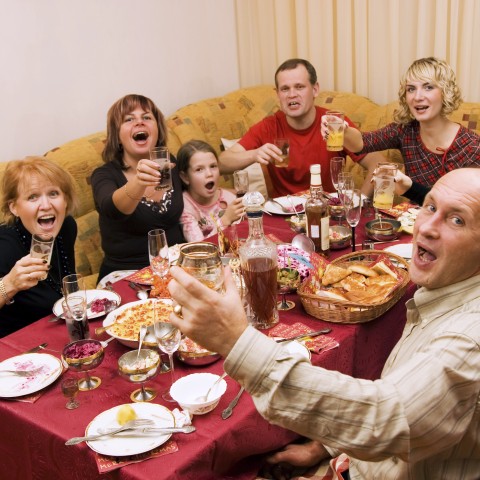
Famille nombreuse, famille heureuse. (Big Happy Family)
2. Beyond the Blood
Families extend beyond the people you share a blood relationship with. Let’s dive into the various types of these unrelated relatives.
Whether you’re in a relationship, engaged, married, single, divorced, separated, widowed, in a civil union, or in the type of situation Facebook describes as c’est compliqué (it’s complicated), talking about your marital status will often be useful.
Once you get married, you strap yourself to a whole bunch of “in-laws” that, with a bit of luck and a lot of work, might become as close as your own relatives.
Don’t you think that “beautiful mother” ( belle-mère ) or “handsome father” ( beau-père ) have a nicer ring to them than the legalish “mother-in-law” or “father-in-law?” As cheesy as it sounds, I feel like it helps to counter the negative association that many people have with the idea of having parents-in-law.
Meeting your “beautiful mother” ( Belle-mère – Mother-in-law)
3- Recomposed Family
Blended or reconstituted families (when the parents have children from previous relationships, but all the members come together under one roof) are increasingly common in France, and are slowly becoming the new normal. They bring unexpected stepfathers, stepbrothers, and usually a lot of complications to work through everyone’s differences. But it can also make broken families whole again and take a turn for the better.
/! Hold on! There’s something confusing here: does belle-mère stand for “mother-in-law” or “stepmother?” Both!
As inconvenient as it sounds, French uses the same set of words for parents-in-law and step-parents. But it’s not a problem, because it’s usually obvious from the context, right? Not always, and quite often, you’ll have to clarify who you’re talking about when referring to your “steps” or “in-laws.”
/! Wait…what about la demi-soeur ? Is it the “stepsister” or the “half-sister?” Both!
Demi literally means “half” and demi-soeur perfectly translates to “half-sister.” But then, we don’t have words for the step brothers & sisters, and it’s common to use demi-frère and demi-soeur , to make up for the lack of better words.
I personally use zéro-demi (or “zero-half” in English) to emphasize the difference, but there’s nothing official about it, and you won’t find it outside of this article!
3. How to Talk About Family

Now that we have a strong arsenal of new words at our disposal, let’s see how you can use them in a conversation. First, we’ll see how to talk about your marital status, then how to mention them in various ways, and finally how to ask questions and learn more about your friends’ families.
1- Your Marital Status
You could be asked about your marital status by friends or colleagues, for paperwork by any administrative office, or by a potential romantic interest on a date. Either way, no time to get it mixed-up!
Start with:
Je suis _______. “I am _______.”
And just pick from the list:
For example:
- Je suis marié. “I am married.” [Masculine]
- Je suis divorcée. “I am divorced.” [Feminine]
- Je suis célibataire. “I am single.” [Same for both genders.]
Most of these words are self-explanatory, but let’s talk about the civil union for a minute. The pacs or PACS ( Pacte Civil de Solidarité , or “Civil Solidarity Pact” in English) is, with the classic civil marriage, one of the two forms of civil union in France.
It was created in 1999, originally to give the same rights and legal protection to same-sex couples. Creating a new type of union instead of changing the traditional marriage was a clever way to not upset the conservative segment of the population, and it proved extremely successful.
Nowadays, the PACS is getting increasingly popular , especially for straight couples who find it more flexible and less bureaucratically heavy than getting married. They represent more than 95% of the total couples getting a PACS. Numbers are also showing that the PACS is slowly taking over traditional marriage.

Je suis mariée. (I am married.)
2- Questions and Answers About Family
With all the words that we’ve learned in the first part of this article, you’ll be able to talk about your family and ask the other person about their parents or brothers and sisters. Let’s have a look at the most common structures:
Est-ce que tu as _______ ? “Do you have _______?”
Tu as _______ ? “Do you have _______?”
- Tu as des frères ? “Do you have brothers?”
- Est-ce que tu as des cousins ? “Do you have cousins?”
- Tu as des enfants ? “Do you have children?”
You can answer with:
J’ai _______. “I have _______.”
- J’ai une soeur aînée. “I have an elder sister.”
- J’ai deux frères. “I have two brothers.”
- Je n’ai pas d’enfants. “I don’t have children.”
- J’ai trois mères. “I have three mothers.” This one is guaranteed to raise a lot of questions at a dinner party.
3- Talking About Family Members
There are many ways you could mention your relatives, and a number of things you may want to talk about, but here are a few examples to help you get the basic structures and elaborate from there:
- Mes parents habitent à Toulouse. “My parents are living in Toulouse.”
- Mes parents sont divorcés. “My parents are divorced.”
- Mon père est décédé l’an dernier. “My father died last year.”
- Ma grand-mère est Brésilienne. “My grandmother is Brazilian.”
- Mon grand-père est photographe. “My grandfather is a photographer.”
- Mes grand-parents vivent en Floride. “My grandparents live in Florida.”
- Ma soeur aînée a deux ans de plus que moi. “My elder sister is two years older than me.”
- Mon demi-frère a bientôt vingt ans. “My half-brother will be twenty soon.”
- Ma femme s’appelle Maurice. “My wife is called Maurice.”
Check out our Top 10 Quotes About Family on FrenchPod101 .
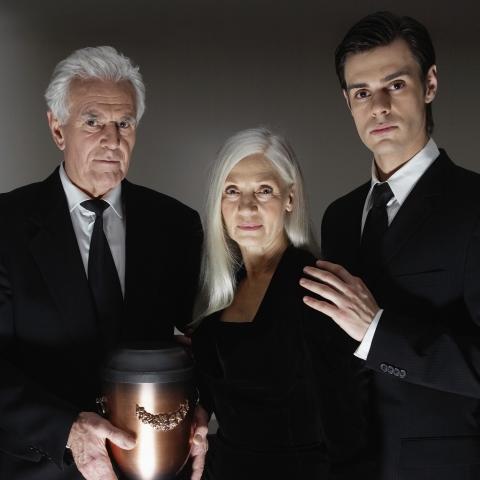
Mes parents habitent en Transylvanie. (My parents are living in Transylvania.)
4. The French Family is Changing Rapidly
Over the last few decades, the very concept of family in France has evolved, mutated, and broadened its definition. The family unit in French culture is now a mix of modernity and tradition, and while some are celebrating those changes, others are claiming that this once “sacred” institution got lured by progress and lost its way.
Before 1950, the French family was traditionally composed of two parents and often many children, as abortion remained illegal until 1975 . Couples were getting married young, often before their 20s, and didn’t divorce. The woman usually stayed home and was subject to the authority of her working husband.
Between 1950 and 2000, families began changing quickly. Divorces became increasingly frequent, as well as single-parent families. After WWII, women began emancipating, claiming more importance and freedom in and out of the household. More and more mothers started working, and the patriarchal system gave way to a more balanced separation of tasks and authority. French laws began evolving at the same time, reflecting these changes of mentalities.
After 1980, divorces and remarriage became commonplace, and three types of families were now frequently found all over France: “traditional” families, single-parent families (children raised by only one parent, usually the mother), and blended families (remarried partners living with children from former relationships).
Nowadays, the definition of the family has expanded a lot, thanks to the PACS (civil union) and the 2013 law on marriage and adoption for same-sex couples. 80% of women from 25 to 49 years old are working (even though income inequality remains an issue), and families are forming later in life.
The average age that mothers have their first child is around 30, and households rarely have more than one or two children . Children born outside of the traditional structure of a married couple are more and more frequent, with the rise of civil union or common-law union.
5. How FrenchPod101 Can Help You Learn More French Vocabulary

In this guide, you’ve learned a lot about how to talk about your family or ask about your friends’ relatives, from the giant word list to the most common questions and answers.
Did I forget any important words or expressions? Do you feel ready to get out there and reveal your most intimate family secrets, using everything you’ve learned today?
Make sure to explore FrenchPod101 , as it has plenty of free resources for you to practice your grammar and learn new words. Our vocabulary lists are also a great way to revisit the words in this article and learn their pronunciation.
Remember that you can also use our premium service, MyTeacher , to get personal one-on-one coaching. Practice talking about your family in French with your private teacher so they can give you personalized feedback and advice, and help you with your pronunciation.
About the Author: Born and bred in the rainy north of France, Cyril Danon has been bouncing off various jobs before he left everything behind to wander around the wonders of the World. Now, after quenching his wanderlust for the last few years, he’s eager to share his passion for languages.
Or sign up using Facebook
Got an account? Sign in here

How To Say ‘Thank you’ in French

How to Say “Hello” in French: Break the Ice Like a Pro!

How to Say I Love You in French – Romantic Word List

The French National Anthem: La Marseillaise

60 Classroom Phrases for Studying or Teaching in France

The Only Guide to French Restaurant Phrases You’ll Ever Need
How to celebrate april fools’ day in french.
- Forum Spotlight
- French Bazaar!!
- French Holidays
- French Language
- French Translation
- Scheduled Maintenance
- Guest Bloggers
- Advanced French
- French Grammar
- French Phrases
- French Podcasts
- French Words
- Tips & Techniques
- Media Coverage
- Feature Spotlight
- Success Stories
- Teaching French
- Team FrenchPod101
- Twitter Lessons
- Uncategorized
- Word of the Day
- Immigration, Visas
Copyright © 2024 Innovative Language Learning. All rights reserved. FrenchPod101.com Privacy Policy | Terms of Use . This site is protected by reCAPTCHA and the Google Privacy Policy and Terms of Service apply.
The Home of Black Friday Deals for Language Learners

“Having comfortable conversations in a new language is now more affordable than ever thanks to these incredible Black Friday deals!”
Benny Lewis, Founder and CEO, Fluent in 3 Months
Get up to 98% off language hacking!
Amazing deals available for 50+ languages.

Unconventional language hacking tips from Benny the Irish polyglot; travelling the world to learn languages to fluency and beyond!
Looking for something? Use the search field below.
Home » Articles » Talk About Family in French – A Guide to French Family Vocabulary [with Audio]

Full disclosure: This post contains affiliate links. ?
written by Alice Cimino
Language: French
Reading time: 13 minutes
Published: Feb 28, 2022
Talk About Family in French – A Guide to French Family Vocabulary [with Audio]
If you’re learning French, you should learn how to talk about family in French. That’s because family is an important topic that often comes up in conversations. In this article, I’ll share the words you need to know, with audio recordings from myself, a native French speaker.
Allons-y! Let’s get started.
Table of contents
French words to talk about your family.
- How to Say “Family” in French: Famille
Rules of Gender, Number Agreement, and the French Family Member Collectives
French terms of endearment for family members, how to write about your family in french – some more vocabulary.
- 1. Qu’est-ce qu’on a fait au Bon Dieu ?
- 2. C’est quoi cette famille?!
- 3. Il a déjà tes yeux
You’re All Set to Talk About Your Family in French!
Psst… Do you like French cinema? Stick around until the end of the article for French movie recommendations that revolve around family!
“Family” in French is famille .
To say “family member” in French you would say membre de la famille . You can also say parent , which also translates to “parent”, as in father or mother.
If you want to talk about family in French, you will need to know the appropriate words to describe the different liens de famille (“family relationships”).
Immediate family:
- la femme or l’épouse – “the wife”
- le mari or l’époux – “the husband”
- les parents – “the parents”
- la mère – “the mother”
- le père – “the father”
- les enfants – “the children”
- la fille – “the daughter”
- le fils – “the son”
- la sœur – “the sister”
- le frère – “the brother”
Extended family:
- la tante – “the aunt”
- l’oncle – “the uncle”
- la nièce – “the niece”
- le neveu – “the nephew”
- la cousine – “the cousin” (feminine)
- le cousin – “the cousin” (masculine)
- la petite-fille – “the grand-daughter”
- le petit-fils – “the grandson”
- la grand-mère – “the grandmother”
- le grand-père – “the grandfather”
- l’arrière-petite-fille – “the great-granddaughter”
- l’arrière-petit-fils – “the great-grandson”
- l’arrière-grand-mère – “the great-grandmother”
- l’arrière-grand-père – “the great-grandfather”
All of these form les proches (“close relations”).
Since this is a lot of information, you can download this chart to keep it for further studies:
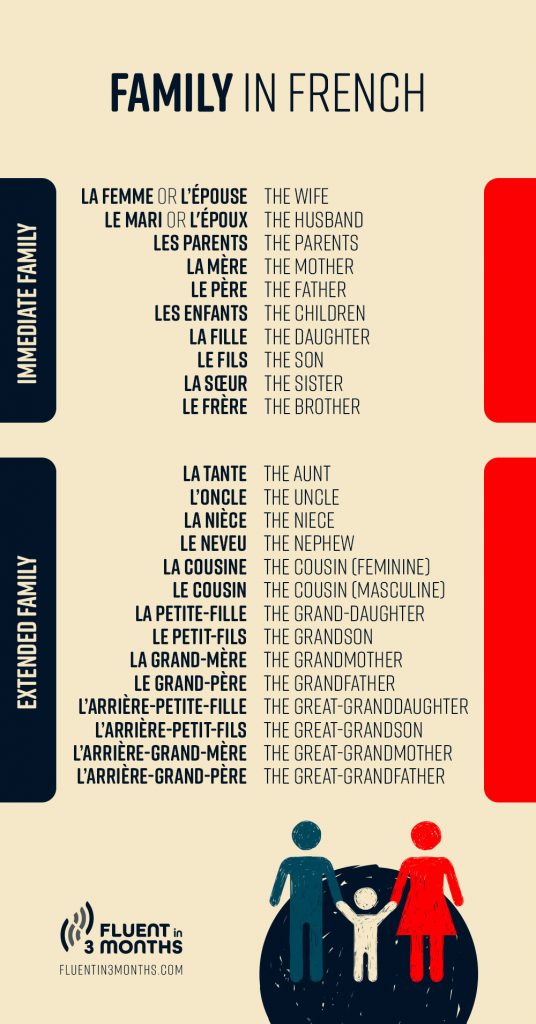
Step-family:
- la belle-mère – “the stepmother”
- le beau-père – “the stepfather”
- la demi-sœur – “the stepsister” or “the half-sister”
- le demi-frère – “the stepbrother” or “the half-brother”
- la belle-fille – “the stepdaughter”
- le beau-fils – “the stepson”
- la belle-mère – “the mother-in-law”
- le beau-père – “the father-in-law”
- la belle-sœur – “the sister-in-law”
- le beau-frère – “the brother-in-law
- la belle-fille – “the daughter-in-law”
- le beau-fils – “the son-in-law”
It might also be useful for you to learn the members of the “godparent family”:
- les parrains – “the godparents”
- la marraine – “the godmother”
- le parrain – “the godfather”
- la filleule – “the goddaughter”
- le filleul – “the godson”
How to Say “Family” in French: Famille
As I mentioned above, “Family” in French is famille .
Famille is a noun, so you will often see famille coming after an article or a pronoun.
The most common ones are:
- La famille – “(the) family”
- Une famille – “a family”
- Ma famille – “my family”
Let’s pause for a second and take a look at how similar famille is to “family”. These words are cognates : even though they’re from different languages, their spelling and pronunciation are similar, and they have the same meaning.
Cognates help you start learning a new language by giving you an instant vocabulary base. One of our favorite courses at Fi3M , French Uncovered , teaches you to recognise French cognates from the very start of yourjourney learning French. It’s a great way to feel more confident in your knowledge and less intimidated by your target language.
(Remember, at Fi3M we’re all about simple language hacks like this that help you learn a language faster 😉.)
The Different Types of Family in French
Once you’ve mastered how to say famille , you can go a little more in-depth and learn the different types of family categorization in French:
- la famille nucléaire or la famille traditionnelle – “immediate family”
- la famille monoparentale – “single-parent family”
- la famille recomposée – “stepfamily” or “reconstituted family”
- la famille élargie or la famille étendue – “extended family”
- la belle-famille – “in-laws”
- la famille adoptive – “adoptive family” or “foster family”
French follows rules of gender and number agreement. This means that if a noun is feminine, the article and adjective(s) that describe it will also be feminine. The same goes for when a noun is singular or plural. This is important to know if you want to describe your family members, for example.
Let’s look at how the agreement rules work.
While we’re looking at the plural forms of French family members, let’s talk about the collective terms for family members. These are words like “the parents” or “the siblings”, which describe the whole group of family members with the same titles, regardless of their gender.
Here are the most common:
- les parents – “the parents”
- all other terms with parents in them, such as les grandparents
- les enfants – “the children”
- all other terms with enfants in them, such as les petits-enfants
- les cousins – “the cousins”
For the other collective terms, you would mention the plural of both the masculine and femenine members. Here are some examples:
- les frères et sœurs – “the siblings”
- les oncles et tantes – “the uncles and aunts”
When you’re referring to several members of the same gender, for examples “the sisters”, you would use the plural of the term, so les sœurs .
When I’m speaking French with my parents, I don’t call my them * mère (“mother”) and père (father).
For parents, the most common terms used in French are:
- la maman – “the mom”
- le papa – “the dad”
There isn’t a collective term for parents other than parents in French, you would simply say maman et papa (“Mom and Dad”).
Grandparents too have their own terms of endearment:
- la mamie – “the granma”
- le papi (sometimes also spelt papy ) – “the grandpa”
You might also hear mémé (“grannie”) and pépé (“granda”), although they are more old fashioned words. My grandmother has never wanted her grandchildren to call her mémé ; she says it makes her sound too old!
For siblings, adding petit(e) or grand(e) does the work:
- petite sœur – “little sister”
- petit frère – “little brother”
- grande sœur – “big sister”
- grand frère – “big brother”
When it comes to the rest of the family, oncle has a more tender version: tonton (“uncle”). In some places, tante also has a sweeter version in tatie . In Guadeloupe, where I grew up, children use tatie as an affectionate term for women, even if they aren’t their aunts.
You’ve learnt the basics of French family vocabulary. Now are you ready for some more specific phrases?
Here are a few phrases you might want to know to talk or write about your family:
- J’ai une grande famille – “I have a big family.”
- J’aime ma famille – “I love my family.”
- La famille d’abord – “family comes first”
- La famille pour toujours – “family forever”
Depending on how deep you get into conversation about your family tree, you might want to know how to say just that. In French, “family tree” is arbre généalogique , which literally translates to “genealogical tree”.
French Cinema and Family – A Few Recommendations
French cinema likes to focus on family. Extended families, reconstituted families, adoptive families… All of them can be the foundation of great French comedy!
As promised at the beginning of the article, here are some of the most popular French films about family.
1. Qu’est-ce qu’on a fait au Bon Dieu ?

Qu’est-ce qu’on a fait au Bon Dieu ? , or “Serial (Bad) Weddings” in English, is a comedy that features an extended family.
Claude and Marie, a Catholic bourgeois couple from a small village in the north of France, see their conservative views challenged by the marriages of their daughters. The three eldest have married men of different ethnic origins and religious beliefs, so their hopes for a Catholic son-in-law rest with their youngest.
This movie and its sequel, which both star some famous French comedians, is a window into complex French modern culture.
2. C’est quoi cette famille?!
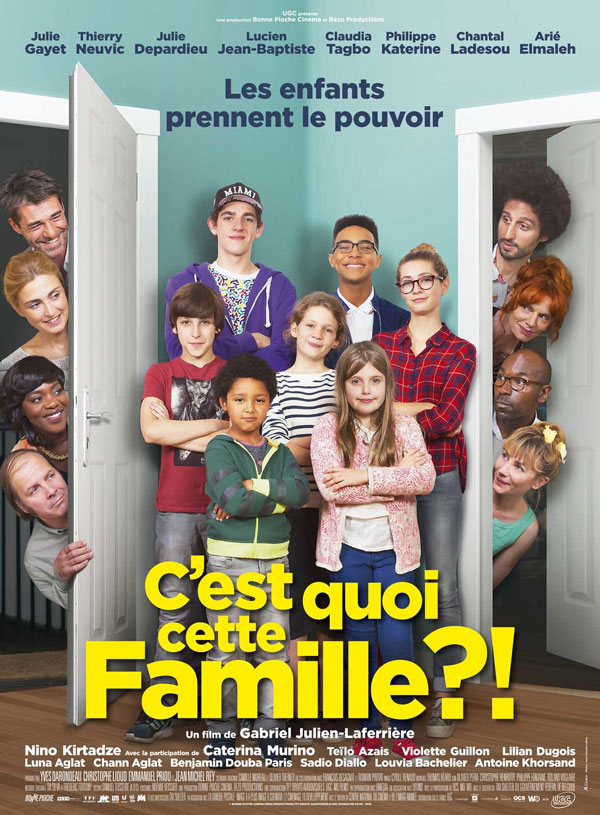
C’est quoi cette famille?! , or “We Are Family” in English, focuses on a reconstituted family.
After several marriages and divorces of both his parents, thirteen-year-old Bastien finds himself part of a very big reconstituted family. Tired of being moved from house to house for shared parenting, the many “half-siblings” decide to live together and have their parents move houses instead.
Even though this movie exaggerates for the sake of comedy, it taps into the reality of reconstituted families, which are very common in France.
3. Il a déjà tes yeux

Il a déjà tes yeux , “He Even Has Your Eyes” in English, is the story of a black couple who can’t have biological children and decide to adopt a baby. The baby is four-months-old, and white. Several people around the couple refuse to accept the adoption.
There is also a mini series whose events take place after the movie.
You can now shop at the père et fils business and listen to your B&B host’s story, and understand everything! Well, at least the part about the family.
If you’re looking for more vocabulary to learn, you could start by checking out this guide to 27 French colors (with audio).
If you’re ready for something else, try working on grammar! French pronouns are a good starting point.
Or maybe try some of these articles:
- How to Speak French: The Faster Way to Learn French
- FrenchPod101 Review: 30 Days with FrenchPod101
- 111 Core French Words — The Most Commonly Used Words in French
- An In-Depth Review of the Staircase Method — Learn a Language through Story
- 30+ Free Online French Classes and Resources (Only the Best!)
Alice Cimino
Student, Freelance Content Creator
Alice is an undergraduate student who loves fiction, languages, and challenges. She's a bilingual by birth and a quadrilingual by consequence .
Speaks: French, Italian, Spanish, English
Have a 15-minute conversation in your new language after 90 days

COMMENTS
I live with my family in a small house. There are three members in my family. They are my father, my mother and me. My house is always safe because of them. I love them very much and they also love me. They are both 40 years old. My father is a doctor and my mother is a nurse.I have never seen my parents wasting their time. They are very hard ...
Ma Famille - My Family - An Essay in French is to help students and people learning French to write a short essay in French. Students of grades 5 - 8 can wat...
La cousine (female cousin); Le cousin (male cousin); Les cousins / les cousines (male or mixture of male and female cousins/female cousins); L'oncle (uncle); La tante (aunt); Le neveu (nephew); La nièce (niece); Introducing Family Members in French. These are the phrases you would whip out at those work and social events, when having people over to your family's home or if you run into ...
How to Write about Family in French | My Family in French 10 Lines - Learn FrenchIn this video, we will learn to write an Essay on My Family in French Langua...
I have a small family: a mom, a dad, a brother, and a sister. We eat dinner together every night. My mom and my sister Nina cook. During dinner, Dad talks a lot and we listen. He is very funny and loves to tell jokes. After dinner, I clean up the table; my dad and my brother wash the dishes. My sister who has many friends spends a lot of time ...
This video teaches how to describe your family using simple French. This video is for the new learners of French.
Past Exam Papers. Junior Cert Papers; Leaving Cert Papers; Leaving Cert. Search by Syllabus. VOCABULARY; ... My Family - Sample Paragraphs. File size: 160.94 KB. Created: 11-05-2024. Updated: 14-05-2024. Hits: 49. Download Preview. ABOUT US. At French Notes, we are absolutely committed to our mission statement: Making exam-focused French ...
In French, it is common to use terms of affection to refer to members of one's family. Here are some examples : My girlfriend) My dear) My dad; My mom; Family ties. There are different ways to describe family relationships in French. Here are some examples : My older brother; My younger sister; My maternal uncle; My first cousin; My step-dad ...
Do not confuse mon parent, meaning "my relative," and mes parents meaning "my parents.. Un parent meaning "a relative," and des parents meaning "relatives," both refer to relatives of any kind, while mes parents (possessive plural) means: "my parents" (in the sense of: mother and father).. Examples: Je vais voir mes parents. "I'm going to see my parents."
French Cinema and Family - A Few Recommendations. French cinema likes to focus on family. Extended families, reconstituted families, adoptive families… All of them can be the foundation of great French comedy! As promised at the beginning of the article, here are some of the most popular French films about family. 1.